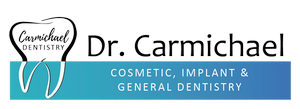Have you ever taken a sip of an ice cold drink and felt a pang of pain in your teeth? If so, you probably have sensitive teeth, a symptom of enamel erosion or the loss of tooth enamel. Sensitive teeth can be caused by a number of issues including gum disease, tooth decay, aggressive tooth brushing, teeth grinding, eating too many sugary and starchy foods, and even genetics. Here, we’ll explain what steps you can take to alleviate your sensitive teeth symptoms and how to make your mouth healthier and happier.
Brush Correctly & Gently
Do the bristles on your toothbrush look pressed down upon? Do you have patches of gum recession? This could mean that you are brushing too aggressively. Brushing correctly will help alleviate the symptoms of sensitive teeth. Use a soft-bristled toothbrush, brush in gentle circles, and avoid a vigorous sawing motion. Remember that brushing harder and faster doesn’t mean you can brush for less than two minutes… it just means you are wearing away your enamel and irritating your gums.
Limit Your Consumption of Acidic Drinks & Acidic Foods
Acid is the enemy of enamel so if you have sensitive teeth, avoid drinks and foods that are acidic. Acidic drinks include coffee, alcohol, soda, and other carbonated drinks. Acidic foods include anything that is high in sugars and starches, such as candy and chips. Citrus fruits are another food to limit if you have sensitive teeth. Instead of these foods, drink milk or munch on cheese, fibrous fruits and vegetables, and yogurt (as long as it’s low in added sugar). Instead of drinking soda or seltzer, grab a glass of water. Chewing sugarless gum also stimulates salivary flow, which helps to remineralize the enamel. If you do indulge in something acidic, be sure to wait at least 30-60 minutes after eating or drinking before brushing your teeth, as acid softens your enamel and immediate brushing will damage your enamel, making your teeth more sensitive.
Wear a Mouthguard to Protect from Nighttime Teeth Grinding
If you have sensitive teeth, grinding your teeth at night could exacerbate your symptoms and even further wear down your enamel. Wear a custom-fitted mouthguard to protect your teeth while you sleep. We often clench our teeth and jaw when we’re stressed, so work on dispelling that impulse and train yourself to unclench your teeth throughout the day.
Avoid Whitening Your Teeth
Are you regularly using at-home whitening products in an effort to get the smile of your dreams? If so, the ingredients in your whitening products may be worsening your teeth sensitivity. Consider taking a break from teeth whitening until your sensitivity subsides.
Use Fluoride Toothpaste & Mouthwash
Fluoride is a naturally occurring mineral that helps to strengthen your tooth’s enamel and prevent decay. You can find fluoride in tap water, but if you have sensitive teeth you’ll want to increase your fluoride exposure by regularly rinsing with a fluoride mouthwash and brushing with an anti-sensitivity toothpaste with fluoride.
Dr. Carmichael also recommends using Sensodyne toothpaste, as it is the #1 dentist recommended brand for sensitive teeth. Sensodyne products are specially formulated to help protect against tooth sensitvity. If you use it daily, you help maintain healthy and strong teeth and gums. By brushing with Sensodyne twice a day, you will have long lasting sensitivity protection and relief.
Ask Us All Your Dental-Related Questions!
Be sure to keep up with your biannual dental visits to check if any tooth sensitivity and tooth pain is due to decay. If you have any other questions about how to combat sensitive teeth or need to schedule your next appointment at Carmichael Dentistry, contact our expert team today.




